
Real-Time and Distributed Systems Research Group
Overview
The Real-Time and Distributed Systems research group is concerned with fundamental and applied research into the development and analysis of systems where the distributed nature of the computation, the need for communication and coordination, and/or the timeliness of the system’s actions are of critical importance to the overall functionality and to the end-users. The group’s research spans many areas, including embedded systems, Internet of Things (IoT), communications, robotics, automotive systems, large scale process control, avionics, distributed computing, and High-Performance Computing (HPC).
Real-time systems are those that are required to respond to inputs within a finite and specified time interval. In some systems, the required response times are measured in milliseconds, in others it is seconds, minutes, or even hours. Nevertheless, they all have timing requirements that must be satisfied. In the production of real-time systems, it is insufficient to use testing of the final system to ensure its compliance with the requirements (as it is infeasible to test all possible timing interference patterns in a system of reasonable complexity). A comprehensive and systematic approach to specification, design, implementation and analysis is required.
Distributed systems are those that divide their workload across networked ‘nodes’ (e.g. processors, computers, embedded devices, robots), which coordinate their actions through message passing. These nodes may be tightly integrated via wired connections (e.g. High Performance Computing platforms), or loosely connected through wireless communication (e.g. IoT devices and robot swarms). Nodes can also be distributed across a variety of spatial scales, from cloud platforms with computation spread across international data centres, to devices located throughout a home, or even networked processors within a single silicon chip. This presents unique challenges in terms of programmability, coordination, communication, and fault tolerance, each demanding consideration of the distributed nature of the system.
The research conducted by the Real-Time and Distributed Systems group is unified around the notions of understanding, modelling, analysing, simulating, optimising, and predicting the performance and use of systems that are real-time and/or distributed in nature.
Aims and Objectives
To undertake fundamental research, and to bring into engineering practice modern techniques, methods and tools facilitating the design, construction, analysis, optimisation, and maintenance of distributed systems and application-specific systems that have real-time constraints.
To investigate a wide range of topics associated with scheduling, timing analysis, modelling, simulation, performance optimisation, runtime environments, parallel programming models, communication protocols and hardware platforms, all of them tailored for performance-sensitive systems.
To address the interdependencies between runtime performance and other requirements such as energy-efficiency, security, safety, and dependability.
Impact
The group collaborates extensively with industry. It has been instrumental in the transfer of real-time systems research into commercial products in areas including automotive, aerospace, communications, manufacturing, and robotics, via interactions with large multinational companies, SMEs and start-ups. Recent project partners include Bosch, Rolls Royce, BAE, Airbus, Huawei, OAS, ETAS, Rapita, ONA and Electrolux. The group also works closely with scientists in the York Plasma Institute, the UK Atomic Energy Authority, UK AWE and the US Department of Energy, as well as engineers from vendors such as Intel, NVIDIA and ARM on projects in the HPC area.
The group’s research output is highly valued by the academic community, with talks and publications featuring regularly in the top venues in the areas of real-time systems, communication and networks, robotics, and HPC.
Ultimately, the group’s research enables technologies and products that are more performant, predictable and resource-efficient. Increased performance enables step changes in scientific and engineering capability; predictability enables safety, providing society with technologies that are fit for purpose even under stringent requirements; resource-efficiency makes those technologies economically viable, and minimises their environmental footprint.
Stories
Group members
| Photo | Contact details |
|---|---|
| Academic staff | |
 |
Academic staff |
 |
Emeritus Professor |
 |
Academic staff |
 |
Academic staff |
 |
Academic staff |
 |
Academic staff - Group lead |
 |
Senior Lecturer
|
 |
Dr Andrew Pomfret Senior Lecturer |
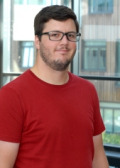 |
Academic staff |
 |
Academic staff |
| Research staff | |
 |
Mohit Bidikar Research staff |
 |
Reader |
 |
Research Assistant |
 |
Research Staff |
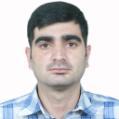 |
Ahsan Khan Research Staff |
 |
Research Associate |
 |
Senior experimental officer |
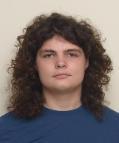 |
Research Associate |
 |
Research Fellow |
| Postgraduate research students | |
 |
Bashar Al-Ani Postgraduate research student |
 |
Rehab Alawadh Postgraduate research student |
 |
Reem Alhabib Postgraduate research student |
 |
Vijon Baraku Postgraduate research student |
 |
Evangelos Barmpas Postgraduate research student |
 |
Serdar Bulut Postgraduate research student |
 |
Ryan McKenna Postgraduate research student |
 |
Andras Pinter Postgraduate research student |
 |
Danny Roberts Postgraduate research student |
 |
Sven Signer Postgraduate research student |
 |
Zadok Storkey Postgraduate research student |
 |
Shibao Yang Postgraduate research student |
 |
Xiaoliang Zhang Postgraduate research student |
| Other affiliates | |
 |
Affiliate |
 |
James Harbin Affiliate |
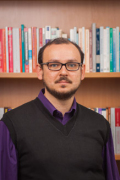 |
Honorary Visiting Professor
|
 |
Joshua Levett Affiliate |
 |
Gricel Vazquez Flores Affiliate |
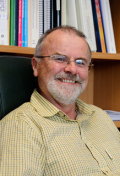 |
Affiliate |
